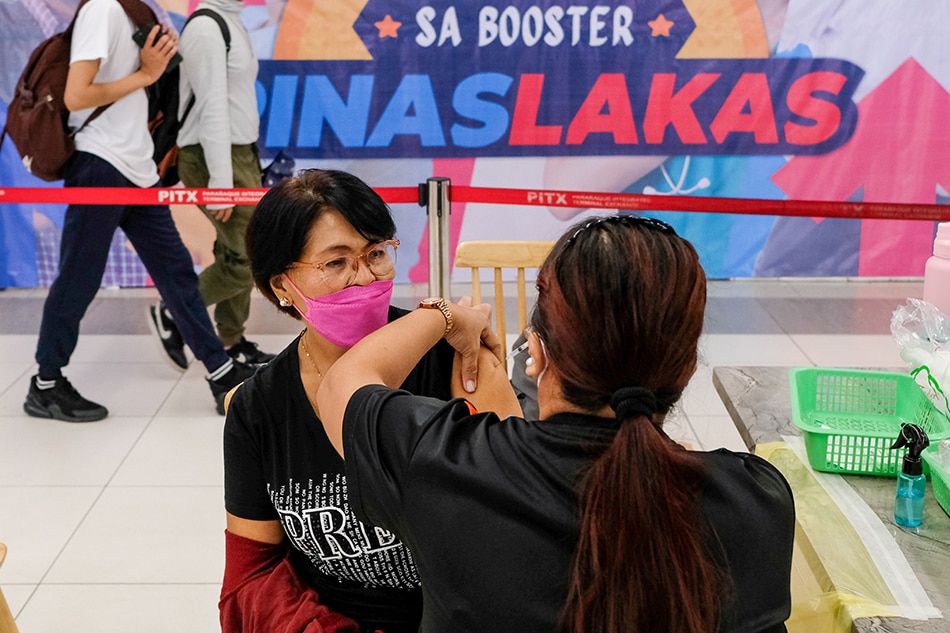WHO begins to reassess highest alert for COVID-19 | ABS-CBN

Welcome, Kapamilya! We use cookies to improve your browsing experience. Continuing to use this site means you agree to our use of cookies. Tell me more!
WHO begins to reassess highest alert for COVID-19
WHO begins to reassess highest alert for COVID-19
Michael Delizo,
ABS-CBN News
Published Oct 15, 2022 02:02 PM PHT
MANILA -- The World Health Organization's (WHO) Emergency Committee on COVID-19 on Friday (Manila time) started deliberations on whether the pandemic still warrants the highest level of alert.
MANILA -- The World Health Organization's (WHO) Emergency Committee on COVID-19 on Friday (Manila time) started deliberations on whether the pandemic still warrants the highest level of alert.
The Emergency Committee holds a meeting every three months to discuss the global COVID-19 pandemic more than two years after it recommended the declaration of the outbreak as a Public Health Emergency of International Concern, the WHO's highest level of alert.
The Emergency Committee holds a meeting every three months to discuss the global COVID-19 pandemic more than two years after it recommended the declaration of the outbreak as a Public Health Emergency of International Concern, the WHO's highest level of alert.
"We have never been in a better position to end COVID-19 as a global health emergency," WHO Director-General Tedros Adhanom Ghebreyesus told members of the committee.
"We have never been in a better position to end COVID-19 as a global health emergency," WHO Director-General Tedros Adhanom Ghebreyesus told members of the committee.
Ghebreyesus said the number of weekly reported COVID-19 deaths is near the lowest since the pandemic began, and two-thirds of the world’s population have completed a primary course of vaccination, including 75 percent of health workers and older people.
Ghebreyesus said the number of weekly reported COVID-19 deaths is near the lowest since the pandemic began, and two-thirds of the world’s population have completed a primary course of vaccination, including 75 percent of health workers and older people.
ADVERTISEMENT
He, however, added that there is still a continuing risk to the world’s population, noting the wide disparities in vaccination rates as three-quarters of people in low-income countries have yet to receive a single dose.
He, however, added that there is still a continuing risk to the world’s population, noting the wide disparities in vaccination rates as three-quarters of people in low-income countries have yet to receive a single dose.
There is also a global decline in surveillance, testing, and sequencing that put uncertainties about the potential impact of current and future coronavirus variants.
There is also a global decline in surveillance, testing, and sequencing that put uncertainties about the potential impact of current and future coronavirus variants.
"But our work is not yet finished," said Ghebreyesus. "It is important that countries maintain and further strengthen their surveillance, testing, and sequencing capacities so that they can quickly identify and trace the virus. At the moment, most countries are not doing this."
"But our work is not yet finished," said Ghebreyesus. "It is important that countries maintain and further strengthen their surveillance, testing, and sequencing capacities so that they can quickly identify and trace the virus. At the moment, most countries are not doing this."
While cases could increase, Ghebreyesus said it does not have to translate to deaths due to the availability of vaccines and therapeutics.
While cases could increase, Ghebreyesus said it does not have to translate to deaths due to the availability of vaccines and therapeutics.
"Countries also need to ensure access to diagnostics, antivirals, and treatment for all, especially those most at-risk," he said.
"Countries also need to ensure access to diagnostics, antivirals, and treatment for all, especially those most at-risk," he said.
ADVERTISEMENT
In an earlier media briefing, WHO's COVID-19 Technical Lead Dr. Maria Van Kerkhove said COVID-19 is circulating "at an incredibly intense level" around the world with the presence of variants and failure to reach the vaccination level coverage in the most at-risk populations.
In an earlier media briefing, WHO's COVID-19 Technical Lead Dr. Maria Van Kerkhove said COVID-19 is circulating "at an incredibly intense level" around the world with the presence of variants and failure to reach the vaccination level coverage in the most at-risk populations.
"The challenges that we face right now are two-fold," said Van Kerkhove. "In the last week alone, we’ve had more than three million reported cases and we know that’s an underestimate because surveillance has changed, testing has changed, reporting has changed."
"The challenges that we face right now are two-fold," said Van Kerkhove. "In the last week alone, we’ve had more than three million reported cases and we know that’s an underestimate because surveillance has changed, testing has changed, reporting has changed."
While the world is seemingly starting to move on, Van Kerkhove advises the public to responsibly live with the virus.
While the world is seemingly starting to move on, Van Kerkhove advises the public to responsibly live with the virus.
"Now, countries are certainly in a different stage, as they were in the beginning. The world is in a much better place in dealing with COVID as we go forward but we’re not quite living with this virus, we’re not managing it as well as we possibly could. We need to live with COVID-19 responsibly,” she said.
"Now, countries are certainly in a different stage, as they were in the beginning. The world is in a much better place in dealing with COVID as we go forward but we’re not quite living with this virus, we’re not managing it as well as we possibly could. We need to live with COVID-19 responsibly,” she said.
RELATED VIDEO
Read More:
health emergency
WHO
World Health Organization
Tedros Adhanom Ghebreyesus
COVID-19
COVID-19 pandemic
pandemic
coronavirus pandemic
ADVERTISEMENT
ADVERTISEMENT


